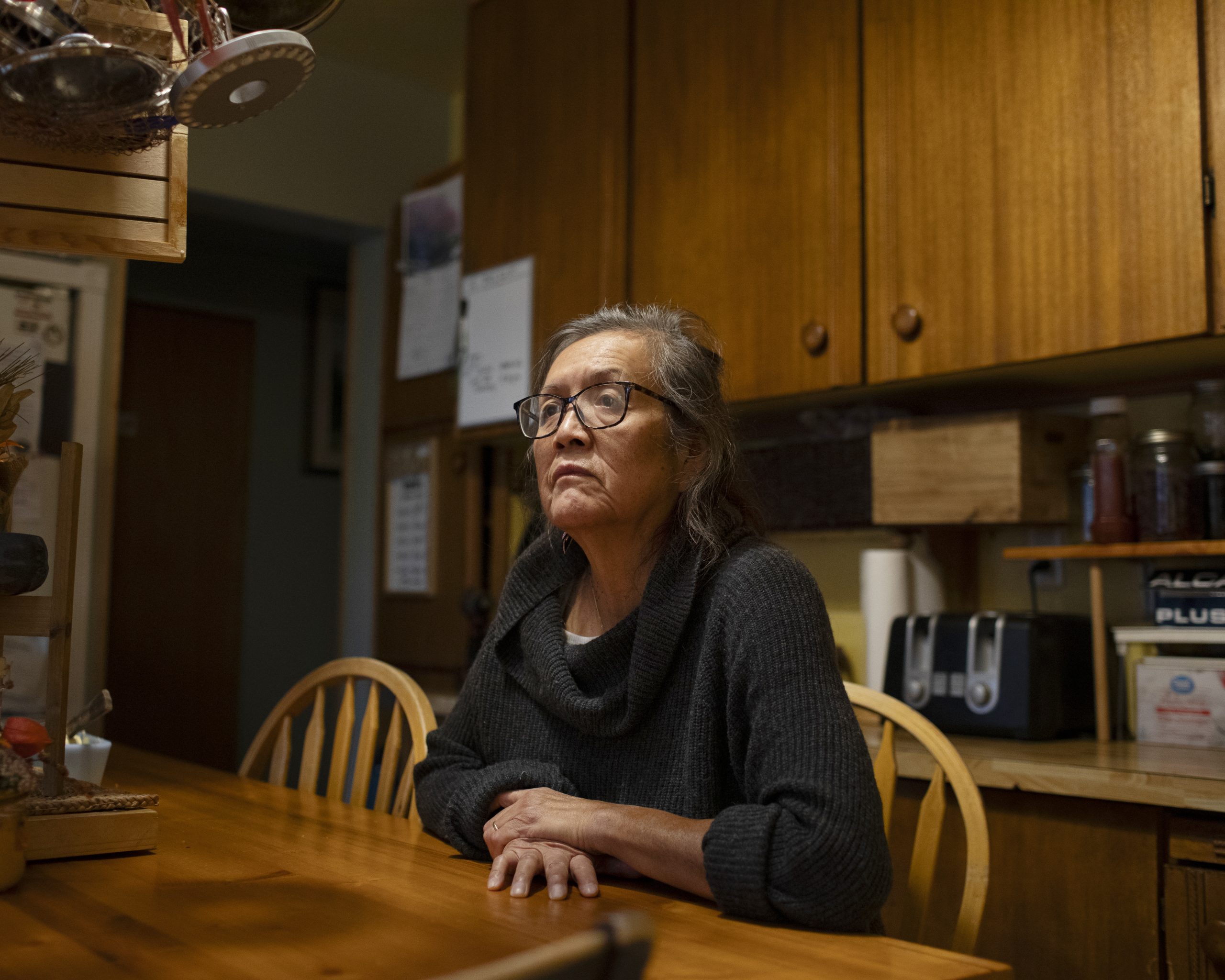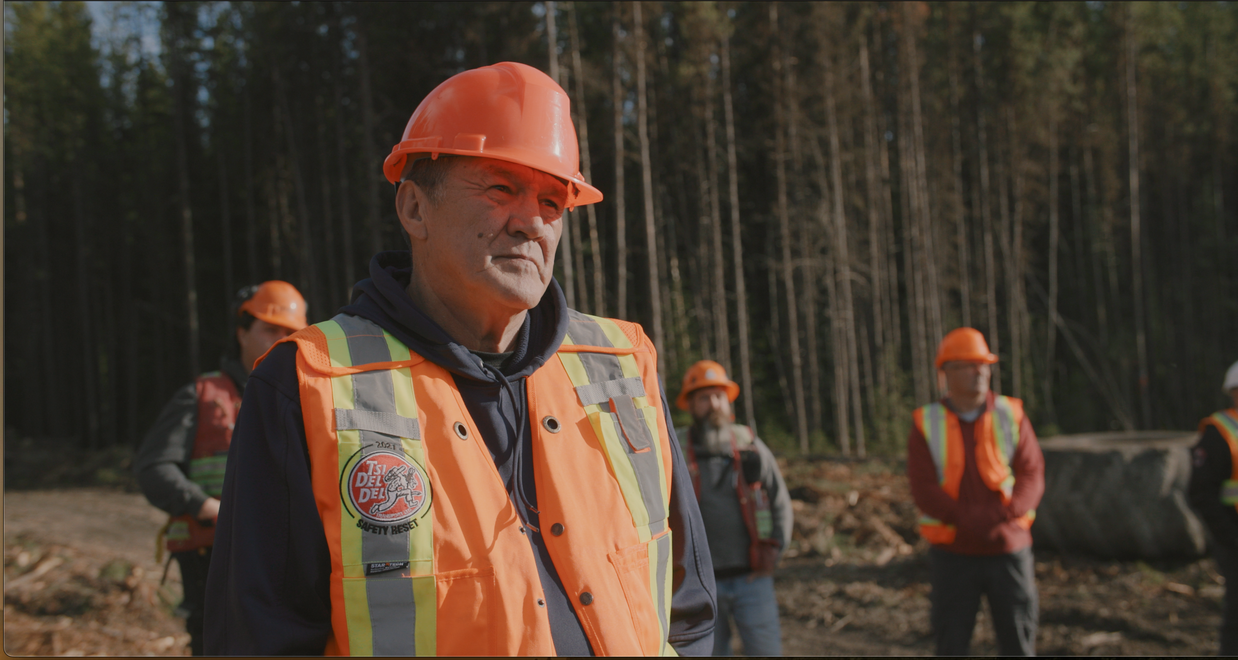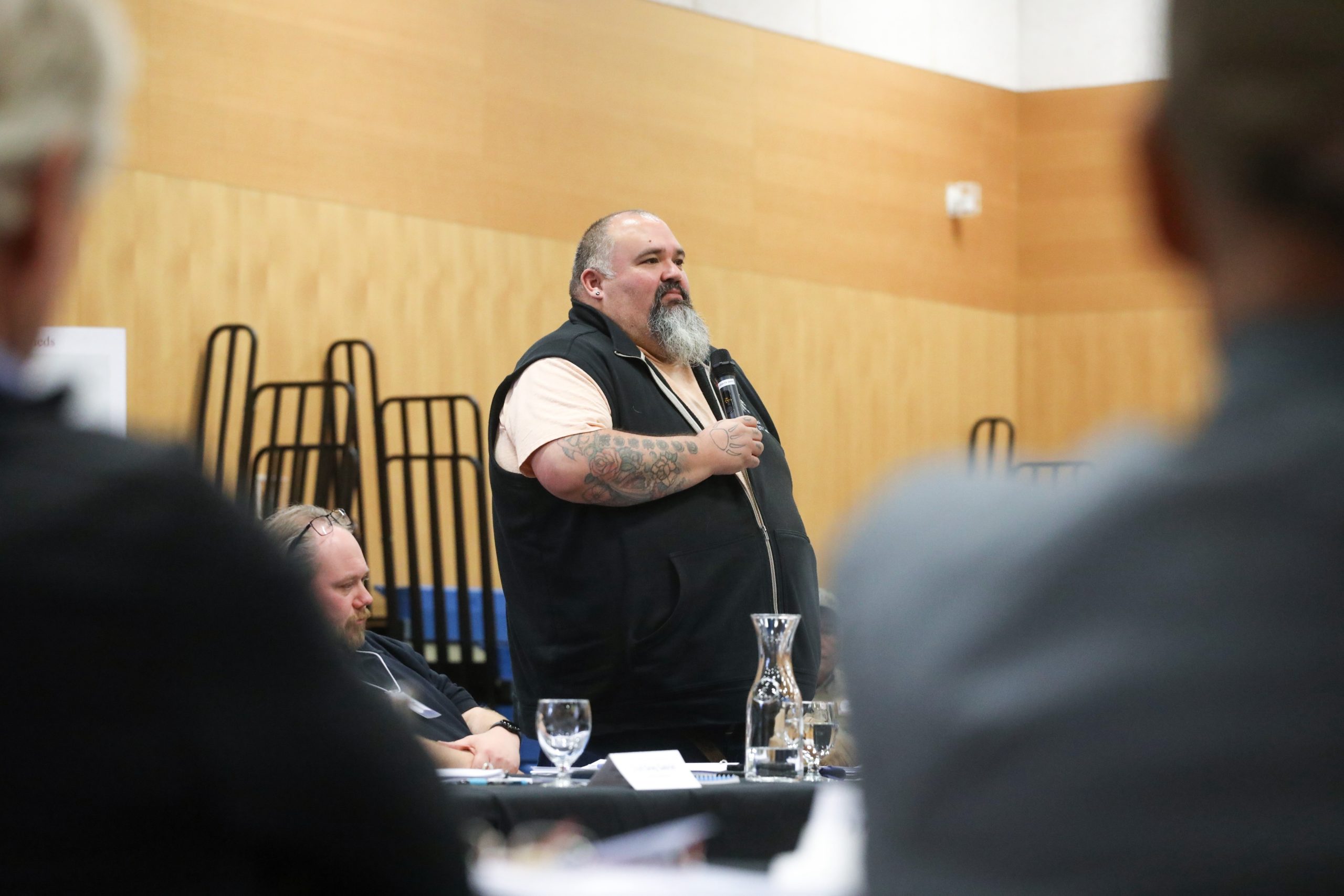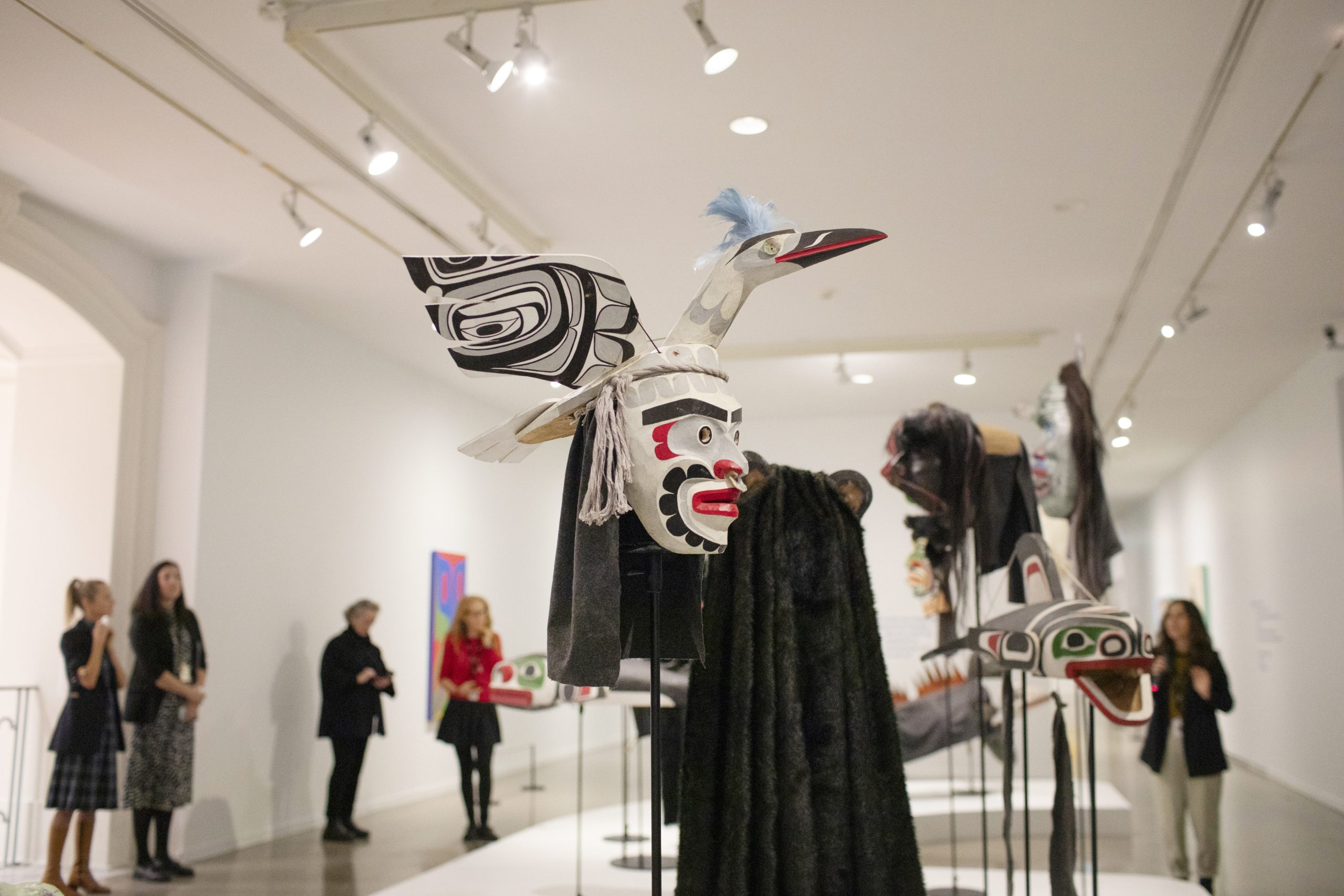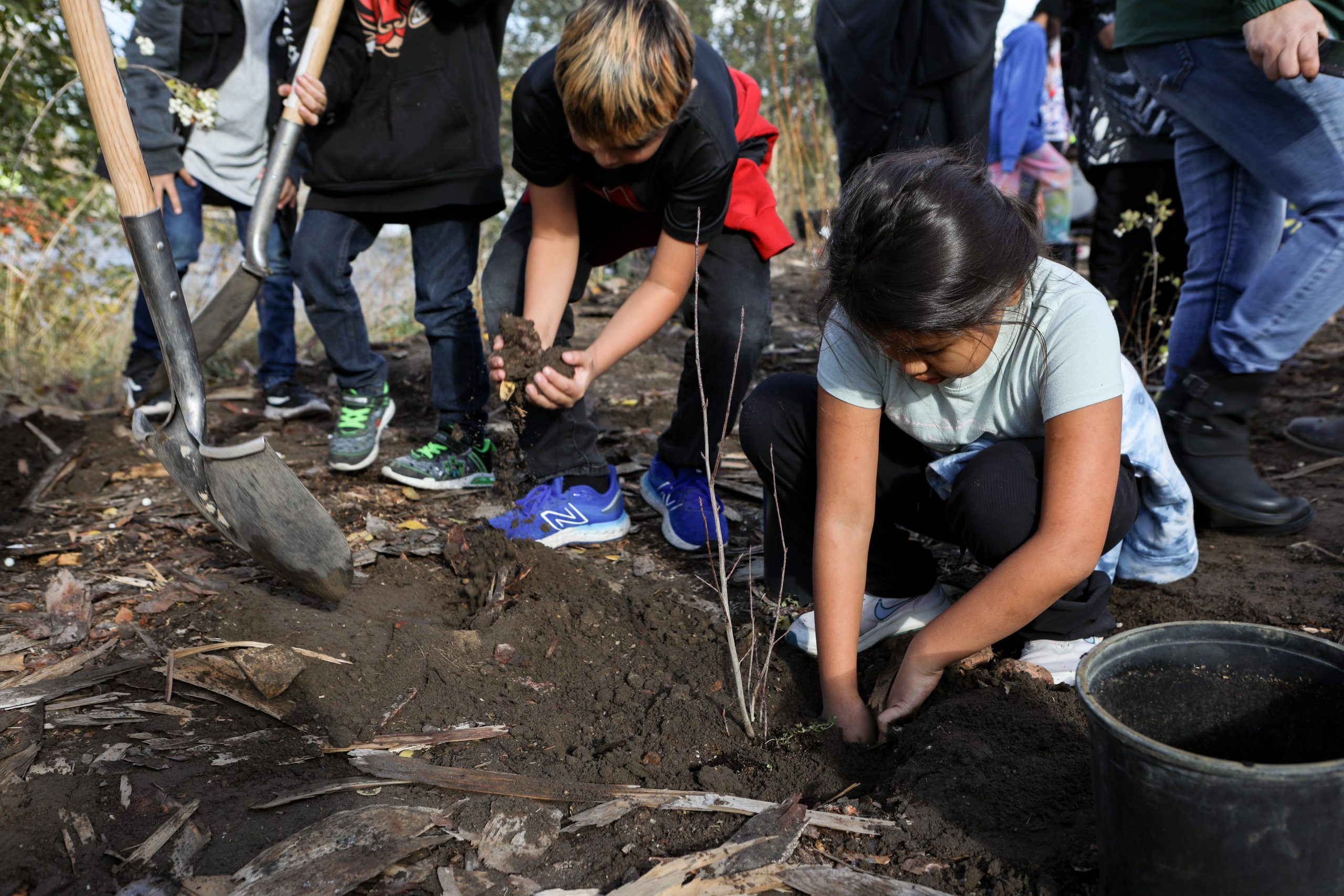The problem is not the generosity of our ancestors, but how it’s exploited
After Pope Francis was presented with a headdress, Anishinaabe/Ukrainian author Patty Krawec reflects on how the ritual of gift giving is tainted by colonial power


I was on my way home from a camping trip when I heard about Pope Francis being gifted with a headdress. When I saw the images circulating, like many others, I was shocked. We drove past towns and roads bearing the names of Indigenous Peoples who had been displaced for white settlement. I thought about how exhausting it is, this propensity of Indigenous men to bestow these things on political or religious leaders who have done nothing but displace us, keeping our names and artifacts like trinkets in order to hide their true nature.
They come to us with pretty words of apology, talking about harms as if they were things that somebody else did in another time, and another place, which really had nothing to do with them — but they now recognize it was harmful and they’re terribly sorry. Part of that apology ritual seems to involve giving these symbols of leadership, as if the colonial borders they’ve drawn around our lands and our people aren’t symbolic enough. As if the uniformed RCMP and other officers maintaining those borders drawn around our lands and our peoples aren’t enough — we add our own flair to those uniforms. Seeing policewomen in ribbon skirts sickens me as much as seeing child welfare workers and police officers in orange t-shirts. These headdresses are part of that same continuum.
And so it was in the midst of my anger over this headdress that some words from Daniel Heath Justice floated into my mind. Daniel was speaking in a completely different context, about those memes that have circulated, suggesting that our ancestors should have had better border security. He was bothered by them, because they situate the problem in us. We should have known better. We shouldn’t have let them in. He pushed back against that idea, pushing the problem back onto colonialism and an avaricious church hungry for wealth and souls. He said that the problem was never the generosity of our ancestors.
I have often referred to Daniel as the Thor to my Hulk. Tempering my anger with kindness — always acknowledging that my anger is legitimate, but reminding me who the target must be. And so I thought about that phrase, the generosity of our ancestors was never the problem. The problem was then, and is now, the colonial powers that twist that generosity, see it as a subservience, an admission that they are the greater power.
When the colonists first arrived on our lands, and our ancestors offered them gifts, it wasn’t a recognition of their power. These gifts were a demonstration of ours. These gifts were a demonstration of wealth and the ability that we had to clothe and feed these newcomers. Symbols of leadership like headdresses recognized their role as leaders alongside us, not above us.
The twisting of the meaning held by these gifts happened within our communities as well. We of course no longer hold the balance of power and our lives are contained and controlled by bordering regimes that do not stop at the outer edges of Canada. These gifts no longer come from a position of power and increasingly take on the appearance of subservience, of appeasement. Please like me, please accept me, please stop hurting me. Hurt people hurt people as the saying goes, and the men bestowing these gifts have been hurt, which brings me to another comment made by Daniel in a different context. We had been talking about an interview with Tomson Highway that came out just as the report from the Truth and Reconciliation Commission was released.
As the official revelations of the horrors of residential “schools” were released into the world, his interview assured Canadians of his own positive experience. He learned additional languages, learned to play the piano. And it is true that our capacity to learn outstripped their capacity to destroy, but his memoir and his plays tell a much different story about his time in those schools. So it was in that context that Daniel remarked on the risks of the trickster in our communities. Because in communities already reeling from trauma, the destabilizing role of a trickster or contrary can be harmful.
The decision to have and release this interview just as the TRC report was being released was, of course, strategic. It undermined and continues to undermine the legacies of harm and created an exception that settlers can use to assure themselves of good intentions and that it wasn’t all bad. But it was. Tomson has every right to tell his story in whichever ways he needs to talk about it. The problem is not in his generosity, it is in the way that the colonial media apparatus uses and exploits that generosity.
I don’t mean to suggest that Chief Wilton Littlechild and others are tricksters. The connection I am drawing between them is the necessary role those various things play in our communities. Because just as tricksters can be destructive in traumatized communities, so can protocols. And so it is in that context, too, that I think about these gifts — this “male peacock behaviour,” as Dr. James Makokis described it on Twitter. Because it isn’t just that generation and the ones before who were harmed by residential “schools.” It is their children and grandchildren who are living with the reverberations of these harms in their lives. The anger and abuse that often followed survivors home. I listen to friends talk about the abuse they experienced, but can never discuss openly because their abusers are residential “school” survivors. Parents and grandparents kept the secrets of their abuse, and their children keep the secrets of theirs. I also see these gifts in that context, the harms that our generosity can cause to those who should be uppermost in our minds.
The problem was never the generosity of our ancestors, but in our generosity we must also be mindful of the precarity in our communities, the traumas from which we are still emerging and how our acts of generosity may cause harm. We must think about whom we are building relationships with and at what price. To whom are we giving gifts and spending our resources? The Catholic church owes some $30-million in reparations. The Canadian state paid more than that on the pope’s visit. Money that was spent to pave roads for him but not us, showing us how quickly the state will build infrastructure in and for our communities when it benefits them to do so. Similarly, many of our own people lack the ceremonies and traditional items bestowed on an institution that will surely just store them alongside items they stole.
There is a story about the deer abandoning the Anishinaabe following our exploitation of them, and for a long period the deer stayed to themselves and rebuilt their communities while the Anishinaabe reflected on their actions. Eventually, when the two came back together, the deer were no longer supplicants begging for their lives. Leanne Betasamosake Simpson tells this story in her book, As We Have Always Done, as a story of resurgence and rebuilding. It is long past time for us to stop giving gifts to those who have harmed us, who persist in harming us. These peacock behaviours do not serve our communities, and in fact are used by colonial power to justify itself. They become masks behind which colonialism and white supremacy can hide.
The problem was never the generosity of our ancestors, but context matters and good things can become harmful.
Patty Krawec is an Anishinaabe and Ukrainian writer and podcaster who lives in Niagara Falls, ON. She is a co-founder of the Nii’kinaaganaa Foundation and her book, Becoming Kin: An Indigenous Call to Unforgetting the Past and Reimagining Our Future will be published in September by Broadleaf Books. Find her on Twitter @gindaanis or online at daanis.ca.
Author
Latest Stories
-
‘Bring her home’: How Buffalo Woman was identified as Ashlee Shingoose
The Anishininew mother as been missing since 2022 — now, her family is one step closer to bringing her home as the Province of Manitoba vows to search for her
-
After Indigenous teen’s stabbing, his family says the system failed to stop his bullying
Foster parents in ‘Courtenay, B.C.’ speak out after a string of alleged incidents targeting them and their 16-year-old foster son, as they wait for trial
-
‘We all share the same goals’: Tŝilhqot’in and syilx foresters learn from each other
Nk’Mip Forestry and Central Chilcotin Rehabilitation visit their respective territories, sharing knowledge and best practices



